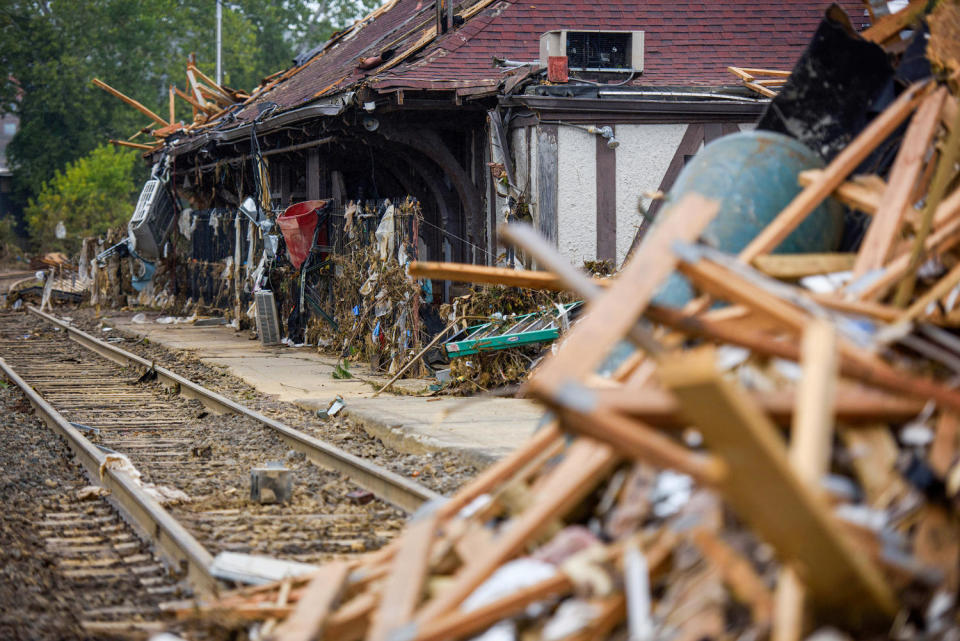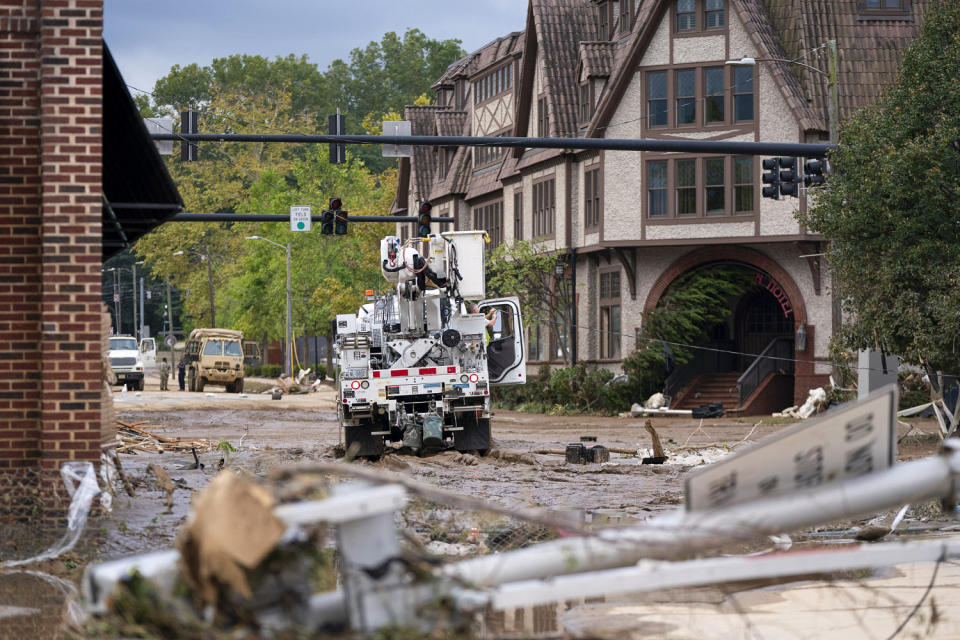ASHEVILLE, N.C. — America’s largest privately-owned estate has abruptly shut down in Asheville after Hurricane Helene caused extensive flooding and building damage along the 8,000 acre property.
The iconic Biltmore Estate, situated in the Blue Ridge Mountains, spans 175,000 square feet, boasts 250 rooms, 43 bathrooms, 65 fireplaces and 22 miles of walking trail.


But the historic property, a tourist attraction known for its gardens and outdoor adventure, tours, exhibitions and restaurants, will be closed temporarily, the estate announced in a social media post this week, becoming yet another victim of the hurricane.
The entrance to Biltmore and other low-lying areas, such as its farm, experienced significant wind, flooding, and building damage, the post said.
There was some luck, however, as damage to the conservatory, winery, gardens, and hotels were minimal.
“We are still assessing impacts to the estate from Tropical Storm Helene and that will take some time,” the estate said. “Like all of this region, the damage varies. In forested areas, which is a large portion of the estate, wind damage is extensive to grounds and some structures.” The post also said crews are clearing roads to start repairs.


Hurricane Helene and its unrelenting floods has killed at least 223 people across the Southeast, and the death toll could continue to climb as dozens of people remain unaccounted for since the storm made landfall in Florida on Sept. 26.
Last weekend, tree branches, logs and a dumpster floated across the nearby Biltmore Village after the area was submerged in water in the wake of the initial landfall.
In western North Carolina this week, including Asheville and surrounding Buncombe County, uprooted homes, submerged vehicles and sunken roads illustrate the devastation inflicted by an unforgiving hurricane.
Thousands of trees were toppled in Helene’s fury, mangled train tracks were left discarded on river beds and school buses were blown away.
George Vanderbilt, who opened Biltmore during the Gilded Age in 1895, is a Staten Island, New York, native and grandson of industrialist Cornelius “Commodore” Vanderbilt, who established the family’s wealth in the mid-1800s through shipping and railroad monopolies.
This article was originally published on NBCNews.com
